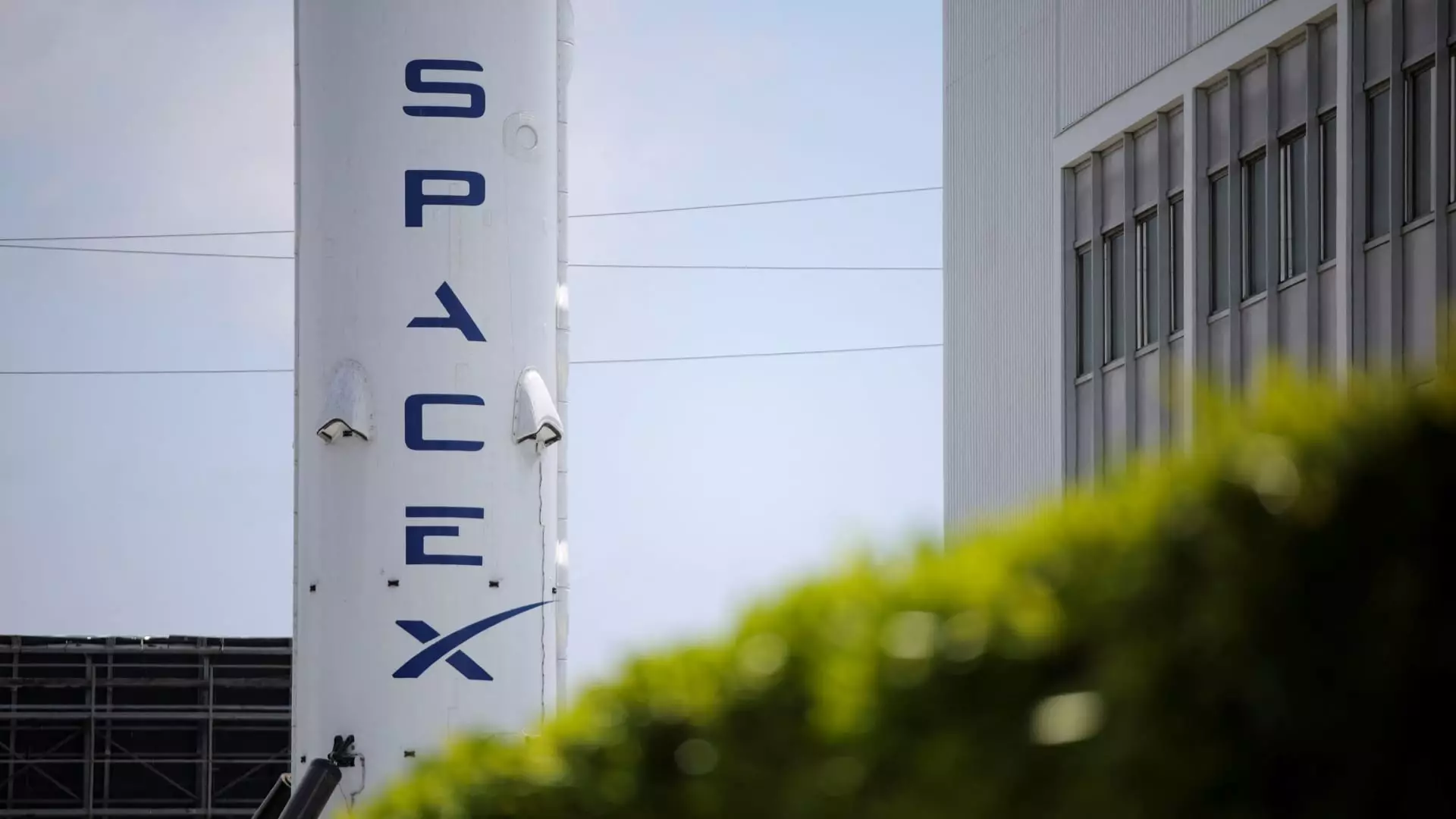The recent tensions between President Donald Trump and Elon Musk have ignited a political storm that poses serious ramifications for national security and the economic landscape of America’s space industry. In an unprecedented move, the White House ordered the Defense Department and NASA to scrutinize billions in contracts awarded to Musk’s SpaceX. This decision reflects not only an escalation in personal and political discord but also underlines the fragility of the relationship between government contracts and the influence of individual egos in the political sphere.
The administration’s actions appear to serve multiple purposes: ascertain the viability of retaliating against Musk, ensure compliance with the president’s objectives, and exercise political leverage. While the rationale behind examining SpaceX’s role in vital defense systems seems rooted in accountability, it is concerning that such scrutiny stems from a public spat rather than genuine governance. When a space enterprise is held hostage to the whims of political rivalry, national interests are inevitably compromised.
The Risk of Weaponization: Contracts as Political Tools
What is particularly alarming about this situation is the potential for government contracts to become instruments of political agendas. The threat to rescind SpaceX’s lucrative contracts underscores the unsettling notion that the president can weaponize economic resources against a private citizen. In an environment where political disagreements escalate to personal vendettas, decisions that should be grounded in the public interest and national security become clouded by subjectivity.
Scott Amey, a contracting expert, aptly highlighted the irony of this scenario: Musk’s SpaceX now faces the same politically motivated scrutiny he once championed as a government official. It seems almost dystopian that policies and partnerships, built on years of collaboration and innovation, could wither under the shadow of a petty squabble. Our very defense capabilities, reliant on cutting-edge technology and aerospace advancements, shouldn’t hinge on ego clashes between two powerful individuals.
The Perils of Overreliance on Private Enterprises
Musk’s SpaceX has indeed become a cornerstone of U.S. national defense and aerospace initiatives. The company’s track record—launching satellites, maintaining cargo supply to the International Space Station, and developing sophisticated technologies—highlights the essential role that private enterprises can play in furthering public interests. However, the potential fallout from the current political landscape serves as a cautionary tale of overreliance on private companies in national security.
The Dragon spacecraft, essential for transporting astronauts to the ISS, is just one example of the critical capabilities SpaceX brings to the table. Musk’s public outbursts, including calls for Trump’s impeachment and provocative insinuations linking the president with scandal, raise questions about the reliability of a partner whose emotional state may dictate essential national functions. If SpaceX were to withdraw support, the repercussions could send shockwaves through space exploration, defense initiatives, and scientific endeavors.
Public Interest vs. Personal Grievance
As the Trump administration embarks on this inquiry into SpaceX’s contracts, there is an evident need to interrogate the motives behind such scrutiny. While the White House asserts that it intends to ensure adherence to regulations, the fine line between governance and revenge is increasingly blurred. The implications of the government’s decision-making processes should concern every citizen who values transparency, accountability, and integrity in leadership.
The narrative surrounding this conflict encapsulates a broader discontent with the notion that governmental actions may be driven by personal grievances rather than strategic interests. It raises important ethical questions about the management of taxpayer dollars and the safeguarding of national security. The situation begs for a return to a principled approach where safeguarding public interests supersedes the pettiness of personal disputes.
As we reflect on this unfolding drama, it becomes painfully clear that the intertwining of personal relationships and critical national functions may severely undermine the United States’ standing in the global arena. The cry for responsible governance has never been more urgent—dismantling such a toxic dynamic is essential for the safeguarding of democracy and the preservation of vital public services. We must ask ourselves: Are we willing to let personal grievances dictate our national path forward?

